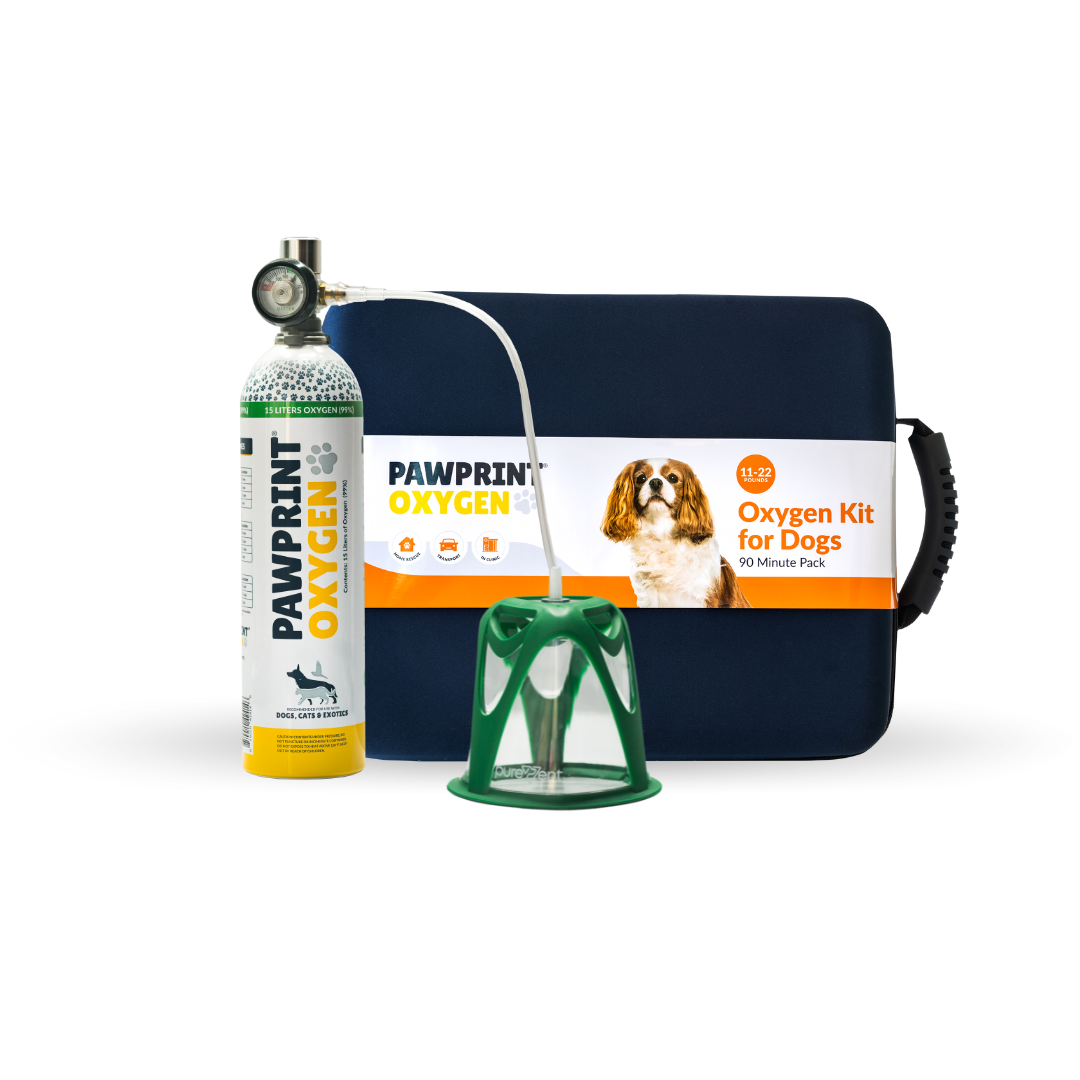Congestive Heart Failure can be a difficult diagnosis to manage, but with the right diet and nutrition, you can help your pup stay healthy and happy. We’ve found the 5 best dog food brands of 2023 to help your furry friend enjoy their meals while supporting their heart health.
What is Congestive Heart Failure (or CHF) in Dogs?
Congestive heart failure (CHF) in dogs is a condition in which the heart is unable to pump blood effectively, leading to a buildup of fluid in the lungs and other organs. It is a chronic condition that occurs as a result of underlying heart disease. The most common causes of CHF in dogs include dilated cardiomyopathy, valvular heart disease, and hypertension.
Symptoms of CHF in dogs can include coughing, difficulty breathing, exercise intolerance, and a decreased appetite. In advanced cases, the dog may have a distended abdomen due to fluid buildup and may have an enlarged heart and lung sounds.
Diagnosis of CHF in dogs typically involves a physical examination, blood tests, x-rays, and an echocardiogram (ultrasound of the heart). Treatment options may include medications to improve heart function, manage fluid build-up, and control underlying conditions, as well as oxygen therapy and fluid therapy. In addition, diet, weight management and regular exercise are important for overall heart health in dogs.
It’s important to note that CHF is a progressive and chronic condition and management will require close monitoring and continuous treatment.
There are two types of Congestive Heart Failure in Dogs:
Right-sided congestive heart failure
also known as chronic cor pulmonale, occurs when the right side of the heart (the side that receives deoxygenated blood from the body and pumps it to the lungs) is unable to pump blood effectively. This can be caused by a variety of underlying conditions, such as lung disease, chronic bronchitis, or pulmonary hypertension.
The symptoms of right-sided CHF in pets may include difficulty breathing, coughing, exercise intolerance, and an enlarged liver or jugular vein. Treatment options may include medications to improve heart function, manage fluid build-up, and control underlying respiratory disease, as well as oxygen therapy and fluid therapy.
Light-sided congestive heart failure
also known as chronic cardiomyopathy, occurs when the left side of the heart (the side that pumps oxygenated blood to the body) is unable to pump blood effectively. This can be caused by a variety of underlying conditions, such as heart valve disease, hypertension, or dilated cardiomyopathy.
The symptoms of left-sided CHF in pets may include coughing, difficulty breathing, exercise intolerance, and an enlarged heart or lung sounds. Treatment options may include medications to improve heart function, manage fluid build-up, and control underlying conditions, as well as oxygen therapy and fluid therapy.
In addition, diet, weight management and regular exercise are important for overall heart health in pets.
The symptoms of right-sided CHF in pets may include difficulty breathing, coughing, exercise intolerance, and an enlarged liver or jugular vein. Treatment options may include medications to improve heart function, manage fluid build-up, and control underlying respiratory disease, as well as oxygen therapy and fluid therapy.
Does My Dog Diagnosed with CHF Need a Special Diet?
Dogs diagnosed with congestive heart failure (CHF) may benefit from a special diet. A diet that is low in sodium (salt) can help reduce fluid retention and ease the workload on the heart. Feeding a diet that is high in protein but low in fat can help maintain muscle mass, which can help support heart function. Additionally, feeding a diet that is high in antioxidants can help protect the heart from further damage.
Diuretic medications like Furosemide are often prescribed to dogs with CHF because they are very good at ridding the body of excess fluid and sodium. By providing your dog with a diet that is low in sodium and chloride, diuretics are more effective at ridding the body of excess fluid and minerals.
It’s important to consult with your veterinarian to understand the best diet for your dog as it will depend on the specific condition and underlying causes of CHF in your dog. Many dogs with congestive heart failure have other diseases present and finding out which disease takes precedence is very important.
Your vet may also recommend a therapeutic diet specifically formulated for heart disease. Additionally, it is important to monitor your dog’s weight as weight gain can exacerbate CHF symptoms.
Besides their Diet, consider Oxygen Therapy for your Dog
Supplemental oxygen can help increase the oxygen concentration in the air that the dog breathes in, which can often help alleviate some of the symptoms of congestive heart failure. It can also help to reduce the workload on the heart by making breathing easier and reducing the need for the heart to work harder to pump blood.
Oxygen therapy for dogs with congestive heart failure typically involves the use of an oxygen concentrator, which removes nitrogen from the air and increases the concentration of oxygen.
The oxygen is then delivered to the dog typically through an Oxygen Cage or via the use of a Pet Oxygen Mask. Pawprint sells portable Oxygen Kits for Dogs here with everything you need to administer Oxygen at home to your Dog, when they need it.
What do I need to look for when selecting food for a Dog with CHF?
When selecting food for a dog with congestive heart failure (CHF), it’s important to look for certain nutritional characteristics. Here are a few things to consider:
1. Low Sodium
A diet that is low in sodium can help reduce fluid retention and ease the workload on the heart.
2. High Protein
Feeding a diet that is high in protein can help maintain muscle mass, which can help support heart function.
3. Low Fat
Feeding a diet that is low in fat can help reduce the workload on the heart and improve overall cardiovascular health.
4. High Antioxidants
Feeding a diet that is high in antioxidants, such as vitamins E and C, can help protect the heart from further damage.
5. High Fiber
Feeding a diet that is high in fiber can help regulate bowel function and keep stools firm, which may be beneficial for dogs with CHF.
6. Low Phosphorus
Some dogs with CHF may have kidney issues and may benefit from a diet low in phosphorus.
Oxygen Kits for Dogs
Administer Oxygen to your Dog in case of an emergency, during transport to a care facility or for health conditions like CHF
Our top 5 dog food picks for Dogs with Congestive Heart Failure
Royal Canin Veterinary Diet: Early Cardiac
Early Cardiac is formulated to support heart function with added EPA and DHA omega-3 fatty acids and low sodium content. Available with a prescription.
Avg. Cost: $84.99
Required
Avg. Rating: 4.5
Hill’s Prescription Diet: Heart Care H/D
formulated to support overall heart health. H/D also helps to support liver and kidney function.
Avg. Cost: $84.99
Required
Avg. Rating: 4
Hill’s Prescription Diet: Weight Management R/D
Clinical nutrition especially formulated to reduce dogs’ body fat by 22% in two months, while keeping him or her satisfied
Avg. Cost: $105.99
Required
Avg. Rating: 4.7
Royal Canin: Canine Satiety to Support Weight Management
formulated to help dogs lose weight in a safe and well-balanced manner. With a special blend of fibers, it helps to keep your dog full longer.
Avg. Cost: $104.99
Required
Avg. Rating: 4.5
Purina Pro Plan Veterinary Diets: CC CardioCare High Protein
formulated to support optimal cardiac function in dogs. CC includes a blend of amino acids and fatty acids to maintain healthy heart structure.
Avg. Cost: $75.99
Required
Avg. Rating: 4













